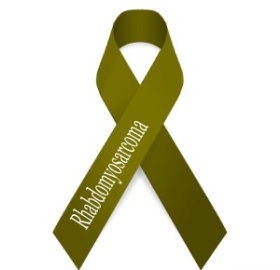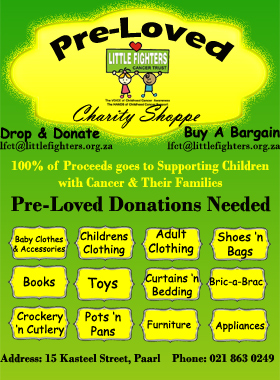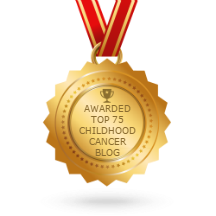Rhabdomyosarcoma

Sarcomas are rare types of cancer that develop in the supporting tissues of the body.
There are two main types:
- Bone Sarcomas
- Soft Tissue Sarcomas
Rhabdomyosarcoma is a soft tissue cancer that develops in the soft tissue of striated muscles, which are the muscles that are attached to bones and help the body to move.
Rhabdomyosarcoma accounts for about 50% of soft tissue sarcomas in children and can begin in various places in the body.
Rhabdomyosarcoma is mostly found in children under the age of 10 and occurs in more boys than girls. If the tumour occurs in the head or neck area it may spread to the brain or the fluid surrounding the spinal cord.
Signs and Symptoms
The most common symptom that presents with rhabdomyosarcoma is a lump or swelling; other symptoms will depend on where the tumour is located in the body.
Some of the typical signs and symptoms of Rhabdomyosarcoma are:
- A lump or swelling that keeps getting bigger, is firm and painless to touch, in the vaginal area, the groin area, or the extremities
- Abdominal pain that lasts for longer than a week
- Bleeding in the nose, throat, vagina, or rectum
- Blood in the urine
- Bulging or swelling of the eye, drooping eyelids, or rapid vision changes
- Hoarseness or difficulty in swallowing
- Trouble urinating or having bowel movements
Some of the above could also be a sign of a medical condition other than cancer, so please consult your doctor if your child exhibits any of these symptoms.
Tests and Diagnosis
Rhabdomyosarcoma can be diagnosed or staged using the following tests and procedures:
- Physical Exam and History: The doctor will perform an physical examination, checking your child’s general health as well as checking for anything unusual or any signs of cancer; a complete medical history will be taken
- MRI (Magnetic Resonance Imaging): An MRI or nuclear magnetic resonance imaging (NMRI), is a procedure whereby a series of detailed pictures is taken of the inside of the body using a computer, a magnet and radio waves
- CT scan (CAT scan): A CAT scan takes a series of detailed pictures of the inside of the body from different angles, using a computer linked to an x-ray machine; a dye may also either be swallowed or injected into a vein to allow the organs and tissues to show up more clearly on the pictures.
- A Bone Marrow Aspiration & Biopsy: Bone marrow, blood and a small piece of bone is removed under general anaesthetic by inserting a hollow needle into the hipbone. Samples are studied under a microscope by a pathologist and various laboratory tests are also done.
Other tests that may be done include x-rays, a complete blood count, blood chemistry studies, a bone scan, a biopsy, a lumbar puncture, a sentinel lymph node biopsy, or an ultrasound.
Treatment Options
Rhabdomyosarcomas are rare tumours and they should only be treated at specialist centres. Treatment will depend on the size, staging and position of the tumour and whether it has spread or not. A combination of treatments may be necessary.
Treatment options consist of:
- Chemotherapy: The use of a combination of anti-cancer drugs to destroy or shrink cancer cells is the preferred treatment for children, and may be done prior to and after surgery
- Surgery: The tumour can often be removed by surgery done by a specialist orthopaedic surgeon. If an operation is not possible for some reason, both chemotherapy and radiation therapy are given.
- Radiotherapy: High-energy rays that destroy the cancer cells but do minimal harm to normal cells. It may be given together with chemotherapy if surgery is not possible or after surgery at the point where the rhabdomyosarcoma started.
Some of the treatment options may result in after-effects such as nausea, vomiting, irritation or soreness of the skin from radiation, hair loss, higher risk of infection, fatigue, bruising and bleeding or diarrhoea. The doctor should explain all of this to you, but if they do not, please ask them about side effects.
Posted on 20 September, 2017, in Blog, Types of Cancer and tagged Child Cancer, Child Cancer Awareness, childhood cancer, Childhood Cancer Awareness, International Childhood Cancer Awareness Month, Little Fighters, Little Fighters Cancer Trust, paediatric cancer, Pediatric cancer, Rhabdomyosarcoma. Bookmark the permalink. Leave a comment.















Leave a comment
Comments 0